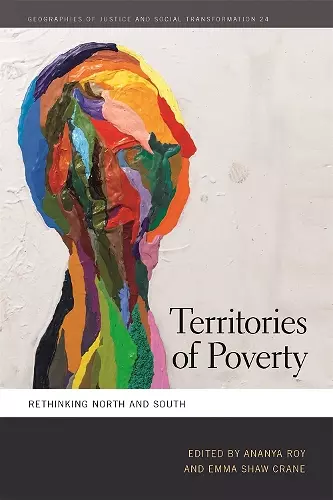Territories of Poverty
Rethinking North and South
Ananya Roy editor Emma Shaw Crane editor
Format:Hardback
Publisher:University of Georgia Press
Published:15th Nov '15
Currently unavailable, currently targeted to be due back around 24th January 2025, but could change

Toward a new, transnational agenda of poverty scholarship
These essays challenge the conventional North-South geographies through which poverty scholarship is organized and confront how poverty is constituted as a problem. In the process, the book analyzes bureaucracies of poverty, poor people’s movements, and global networks of poverty expertise.
Territories of Poverty challenges the conventional North-South geographies through which poverty scholarship is organized. Staging theoretical interventions that traverse social histories of the American welfare state and critical ethnographies of international development regimes, these essays confront how poverty is constituted as a problem. In the process, the book analyzes bureaucracies of poverty, poor people’s movements, and global networks of poverty expertise, as well as more intimate modes of poverty action such as volunteerism. From post-Katrina New Orleans to Korean church missions in Africa, this book is fundamentally concerned with how poverty is territorialized.
In contrast to studies concerned with locations of poverty, Territories of Poverty engages with spatial technologies of power, be they community development and counterinsurgency during the American 1960s or the unceasing anticipation of war in Beirut. Within this territorial matrix, contributors uncover dissent, rupture, and mobilization. This book helps us understand the regulation of poverty—whether by globally circulating models of fast policy or vast webs of mobile money or philanthrocapitalist foundations—as multiple terrains of struggle for justice and social transformation.
Most noteworthy in the Territories of Poverty project is the incorporation of detailed local ethnographies in a global context displaying the bewildering variety of capitalism’s many faces, be it in post-Katrina disaster relief, city planning in war-torn Beirut, securitizing of debt through microfinance in Bangladesh, or Korean evangelizing in East Africa. This is the biggest strength of the book, making it a must read in any graduate seminar on poverty.
* Economic Geography *This innovative collection of essays seeks to enact a new way of thinking about poverty research, welfare policy, and development practice. It does so by drawing into explicit conversation two distinct traditions of research –American-based scholarship on the histories and practices of modern welfare systems, and critical ethnographies of development in the global South. . . . For any one book to do one of these three things would be commendable enough; for it to succeed across all three areas is what makes this book more than a mere collection but an essential reference point for an emerging field of inquiry into the historical geographies of problematizations.
* Space and Polity *This book offers a springboard that hopefully will help us move beyond the Global South label given to countries that…are considered less developed than those in the Global North.
* Journal of Planning Education and ResearISBN: 9780820348421
Dimensions: unknown
Weight: unknown
392 pages